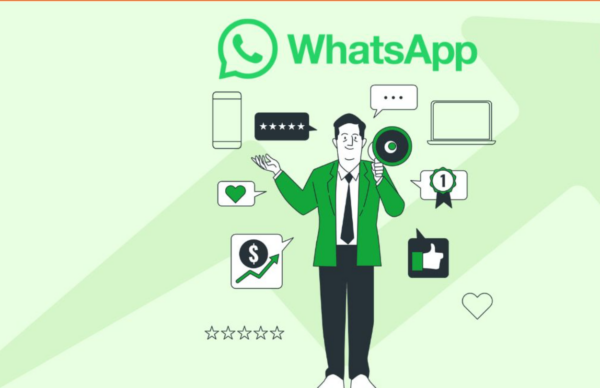How to Boost Your D2C Company Using WhatsApp Marketing 2023
As an Email + WhatsApp marketer, I want to tell you about one of the most satisfying projects I’ve worked on.
A few months ago, an ecommerce store owner who was at the end of his rope sent me a direct message on LinkedIn. His store was barely making any money, he was using up his marketing budget with little to show for it, and he was about to shut it down for good.
As a business owner myself, I felt bad for him. So I decided to accept the challenge and see what I could do to help him turn things around.
The first thing I did was look at his customer data in detail. I was curious about who his customers were, what they bought, and why they bought from him (or not).
I found a goldmine of potential that hadn’t been used yet. The store had a good number of customers, but most of them only bought one thing and then left. There was no loyalty, no repeat business, and no word of mouth.

It was clear that the store owner had been putting all of his time and effort into getting new customers, but he had forgotten about his most valuable asset, which is the customers he already had.
The key to growing is to build profitable relationships with customers.
As a founder or marketer for a direct-to-consumer business, you should know that Email and WhatsApp work differently for high-revenue brands. To grow, you need to be able to pay more for new customers than your competitors. But spending money to get new customers can be expensive and even risky if you don’t have a plan for how to keep them and make money from them.
So, what should we do? Brands worth millions of dollars have different ideas about how to treat their customers. They create and improve processes that make more sales, find hidden profits, and help an organization grow quickly. They changed the way things were seen from one-time deals to ongoing interactions.
This is what you should do
One way they use their customer relationships to their advantage is by making sure each customer’s CLTV is as high as it can be (Customer Lifetime Value). This means that they don’t see the first sale as the end goal. Instead, they see it as the start of a relationship with a customer that could be long and profitable.
To make the relationship more profitable, they sell more products to individual buyers, treat customers well so they’ll stay longer, and do everything they can to get more money from the same people. Using the power of Email + WhatsApp marketing is one of the best ways to do that.
You can make more money from your current clients for no extra cost by using flows and campaigns. For example, you can use a win-back flow that gives customers who haven’t bought in a while an offer they can’t refuse. This will increase CLTV in the long run. You can also send campaigns to people who bought something from you in the last 90 days offering free products.
One of my clients is making $30,000 a month on autopilot through Email and WhatsApp marketing, so I know this works. When they have more money, they can pay a higher CAC to get more new customers, which will make them CASH in the long run.
Putting the power of automated email and WhatsApp sequences to work for you
Getting back to our guy, I used the above principle to start making an Email and WhatsApp marketing plan that would help him out of this situation. I made a series of automated Email and WhatsApp flows and campaigns that would reach customers at the right time with the right message and encourage them to come back and buy more. And the results shocked everyone.
The store’s sales had tripled in just a few weeks. Yes, you did read that right.
Also, the store owner could now spend more on getting new customers because he had a tried-and-true method for getting the most out of each customer over time.
This project really opened my eyes, and it taught me a valuable lesson: Email + WhatsApp marketing is not just a nice-to-have, it’s a must-have for any ecommerce business that wants to grow.
Smile is this week’s tool.
Smile is an app for Shopify that is a good way to build customer loyalty programs. Customers are more likely to take advantage of deals and earn points if the app has features like pop-ups and personalized rewards. Built With says that Smile is one of the most popular pieces of software for Shopify-based websites. Incentives for loyal customers have been shown to increase conversions, average order value, and customer retention.

